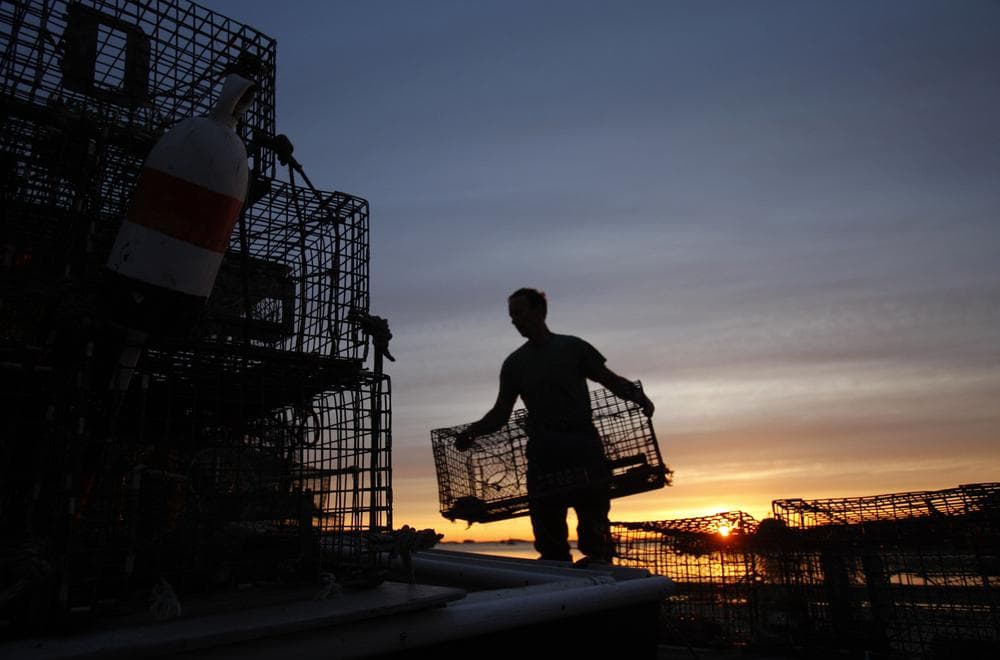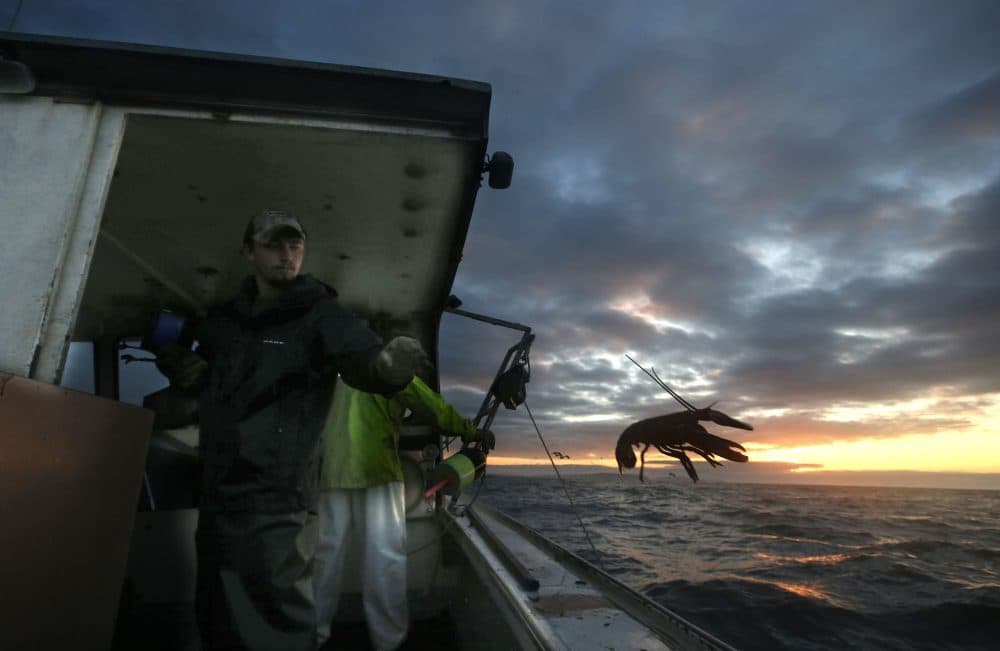Advertisement
Ocean Acidification Spells Trouble For Mass. Shellfish Industry, Report Says

The Massachusetts fishing economy generates more than $600 million annually and supports more than 5,700 jobs, according to the UMass Dartmouth Public Policy Center.
But a new report from the Massachusetts Special Legislative Commission on Ocean Acidification says the industry could suffer serious losses by the end of the century if ocean acidification — a process propelled by climate change — goes unaddressed.
“Ocean acidification is an existential threat to marine ecosystems and the livelihood of the people who work in them,” said state Rep. Dylan Fernandes, who led the commission that published the report.
As ocean water grows more acidic, shellfish struggle to form and maintain healthy protective shells, making them less likely to survive. Ocean acidification poses a particular threat to oysters, lobsters, and clams.
The entire U.S. shellfishing industry is expected to lose more than $400 million annually due to ocean acidification by 2100. Those impacts could be felt especially hard in Massachusetts, where dozens of coastal communities and thousands of individuals depend on shellfish to make a living.
"These changes are happening now," said Kelly Kryc, Director of Ocean Policy at the New England Aquarium. "They're affecting our shellfish and they're affecting all marine life in the region."

Two major factors are driving the process, according to the report: carbon emissions and nutrient runoff. About 30% of the carbon dioxide humans put into the air – through activities like burning fossil fuels – is absorbed by the ocean. And as more carbon is dissolved into the ocean, the water becomes more acidic.
Nutrient pollution — when rain washes things like lawn and garden fertilizers into marine ecosystems — also contributes to the problem. The excess nutrients feed algae growth, which then blocks the light needed for sea plants to grow. The plants die and absorb oxygen as they decay, which leads to more marine die-offs, and more carbon dioxide in the water.
Rising ocean temperatures also contribute to ocean acidity, and the Gulf of Maine is warming faster than the global average.
State Rep. Fernandes said the commission focused on solutions Massachusetts can tackle at the state level. The report recommends that Massachusetts improve its ocean acidification monitoring system, restore wetlands and marshes, and reduce nutrient pollution.
The report does not project specific economic impacts Massachusetts could suffer if no action is taken, said Emiley Lockhart, Deputy General Counsel at Woods Hole Oceanographic Institution and a member of the commission. However, the report says that because the state “contains some of the most acidification-vulnerable communities in the country, it will be disproportionately affected” by shellfish losses.
“We are proposing to take action now to mitigate the long-term impacts," Lockhart said.
State Sen. Julian Cyr, co-chair of the commission, said that it’s increasingly difficult for residents to make a stable living in coastal Massachusetts. And yet, “aquaculture has been one of the few bright spots in economic development in coastal communities.”
“If we don’t safeguard that, that only further erodes our communities and the ability for people to make a living."